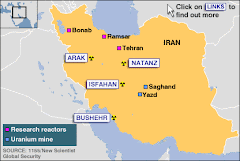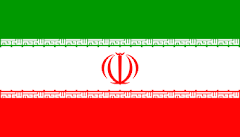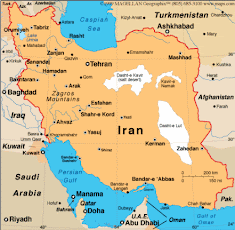 Israeli Prime Minister
Israeli Prime Minister'All options' legitimate to prevent nuclear Iran
JERUSALEM (AP) -- Prime Minister Ehud Olmert told a powerful parliamentary panel Monday that Israel rejects "no options" to block Iran from obtaining nuclear weapons, a meeting participant said.
The statement was the Israeli leader's clearest indication yet that he is willing to use military force against Iran.
"Israel clearly will not reconcile itself to a nuclear Iran," the meeting participant quoted Olmert as telling the Foreign Affairs and Defense Committee. "All options that prevent Iran from gaining nuclear capabilities are legitimate within the context of how to grapple with this matter."
The meeting participant spoke on condition of anonymity because the session was closed.
Olmert addressed the panel days after discussing Iran's nuclear ambitions in talks with President Bush in Jerusalem.
During that visit, Israeli officials disputed the recently released conclusions of a U.S. National Intelligence Estimate that concluded Iran halted its nuclear weapons program in 2003.
In Jerusalem, Bush declared that Iran remained "a threat to world peace," but reasserted his commitment to trying to resolve the standoff over Iran's nuclear program diplomatically.
Although Israel successfully knocked out Iraq's nuclear program with a single airstrike 26 years ago, any attack on Iran's nuclear program would be more complicated because its facilities are scattered, with some hidden underground.
Such an attack would also almost certainly unleash an Iranian reprisal against Israel, U.S. forces in the Persian Gulf or both.
This is significant because Israel is saying that they will use military force if needed and they do not want Iran to have any nuclear weapons.



No comments:
Post a Comment